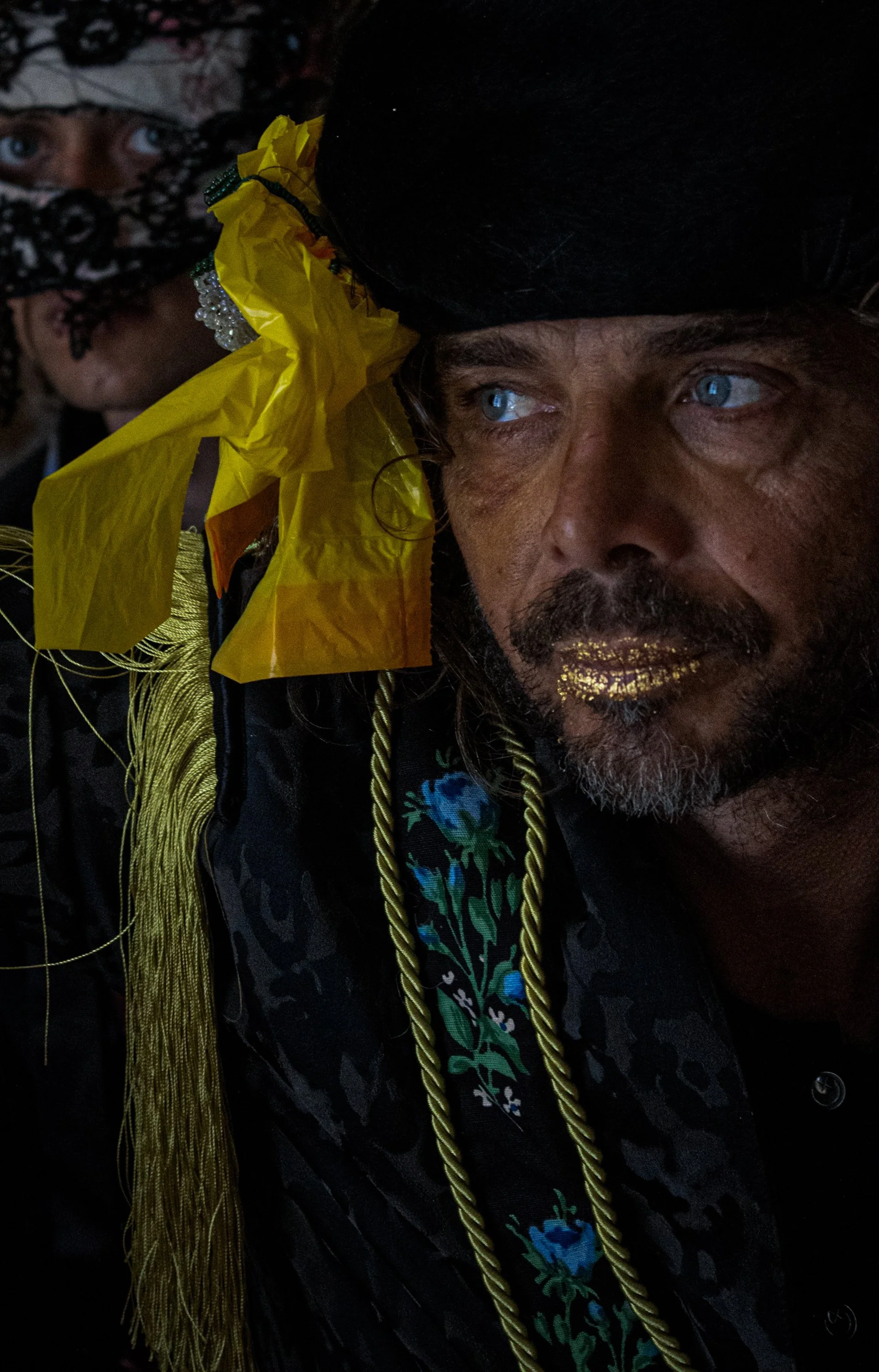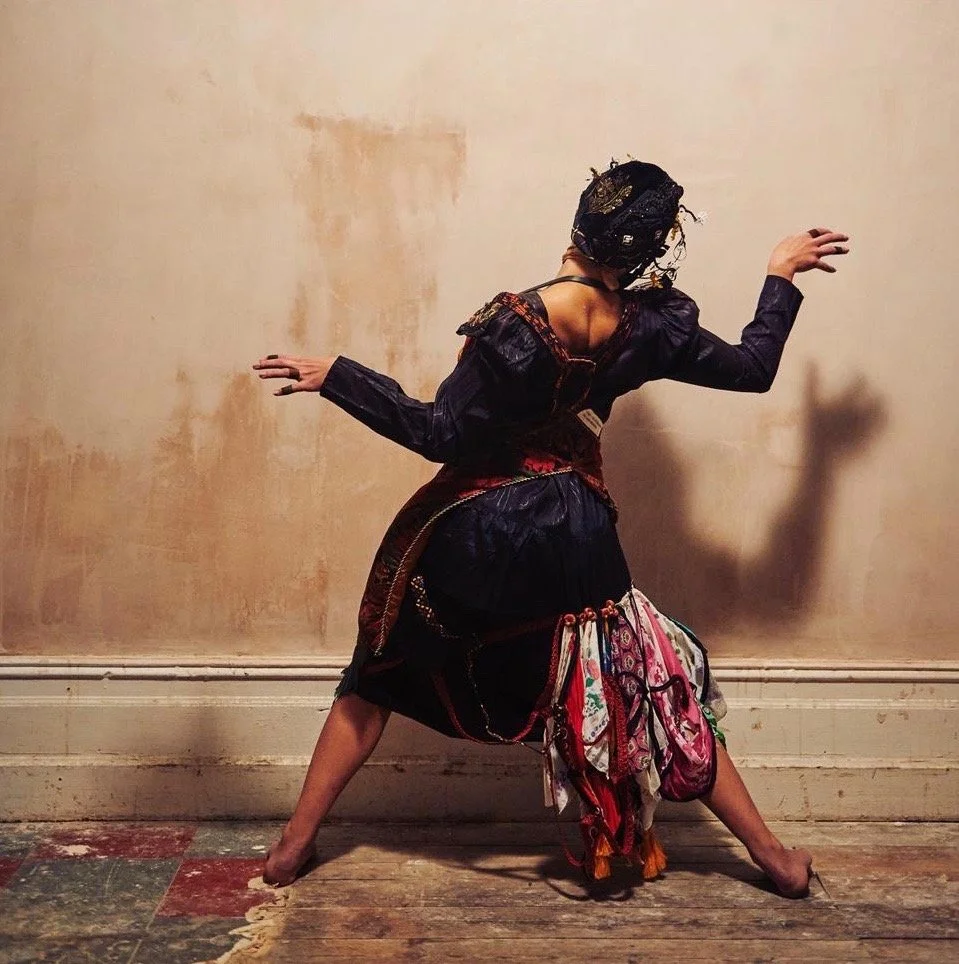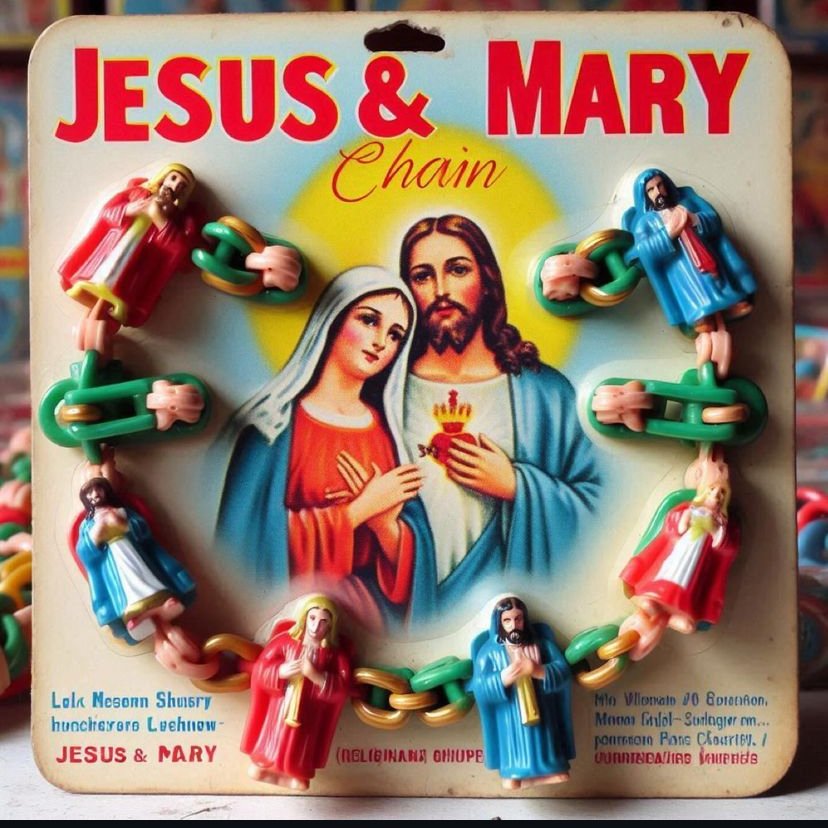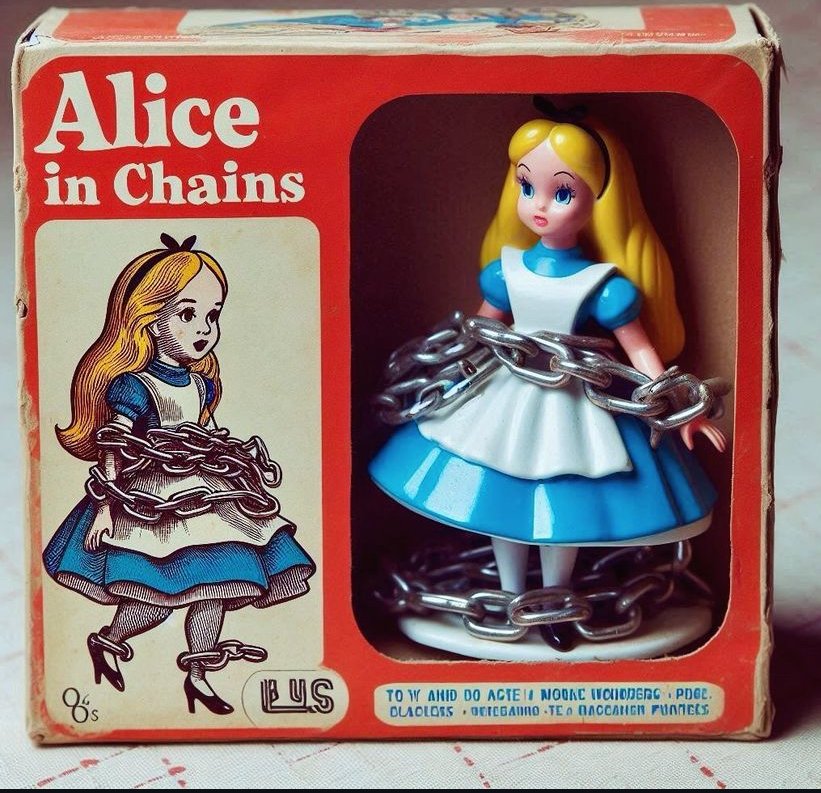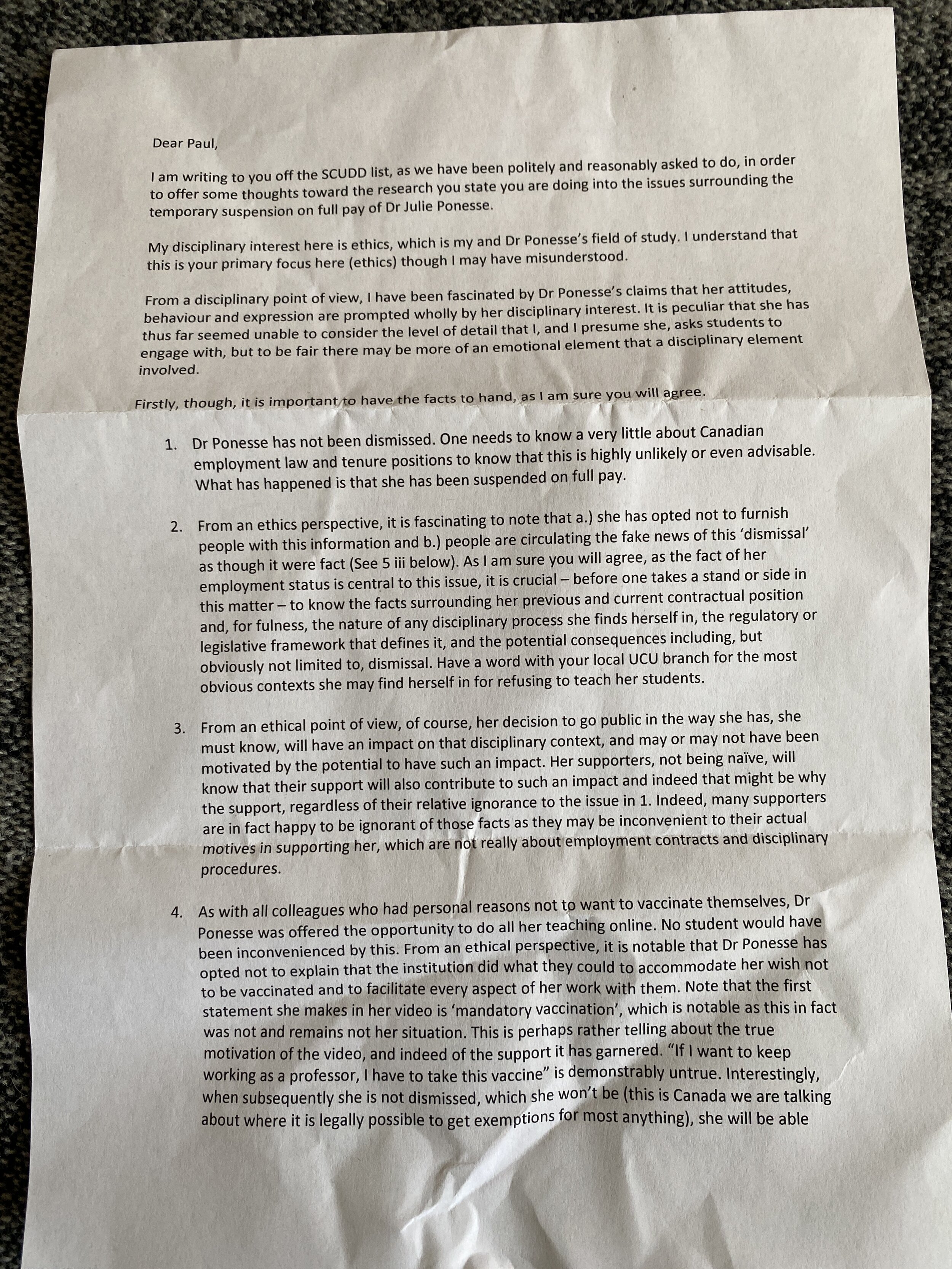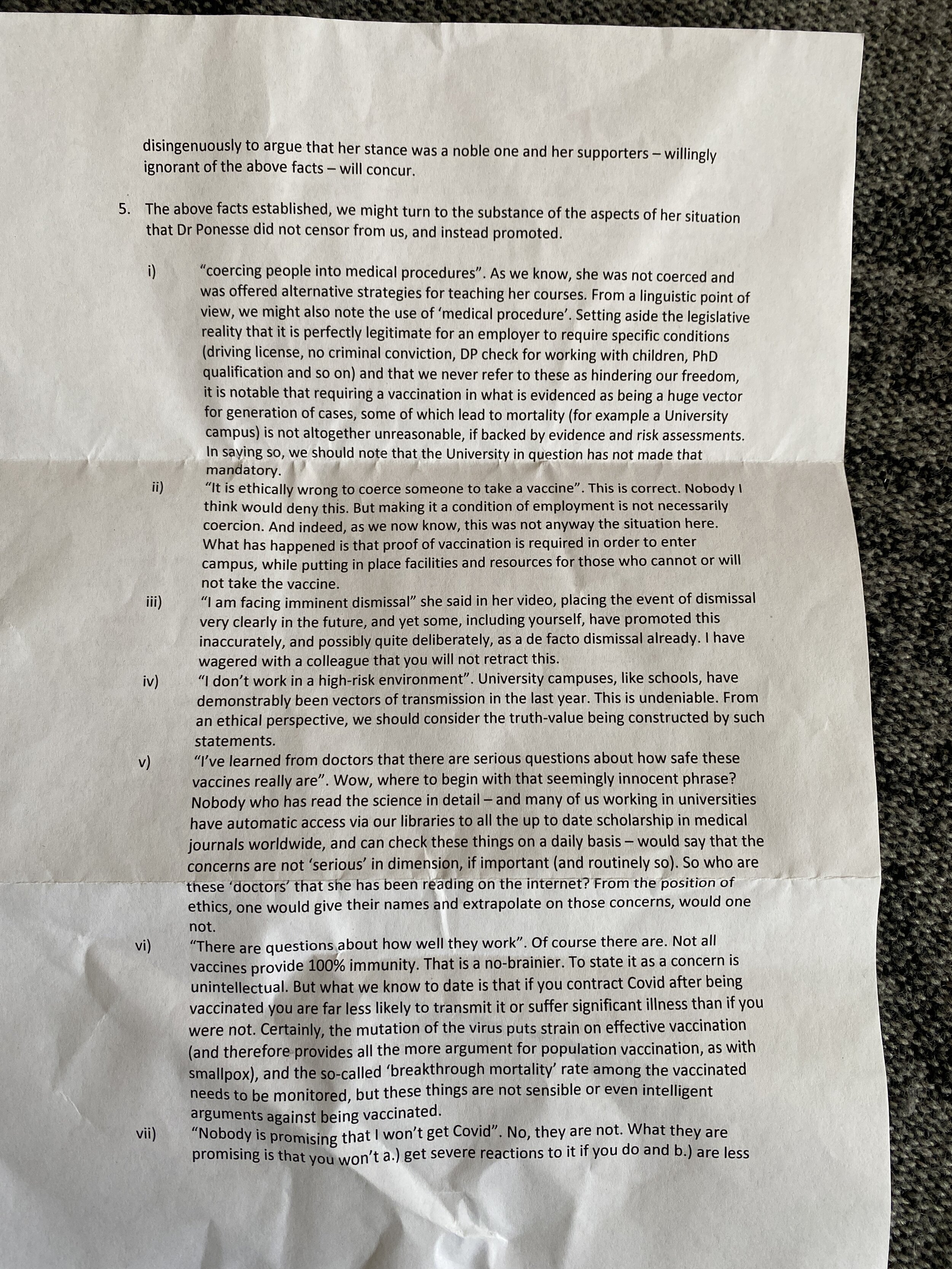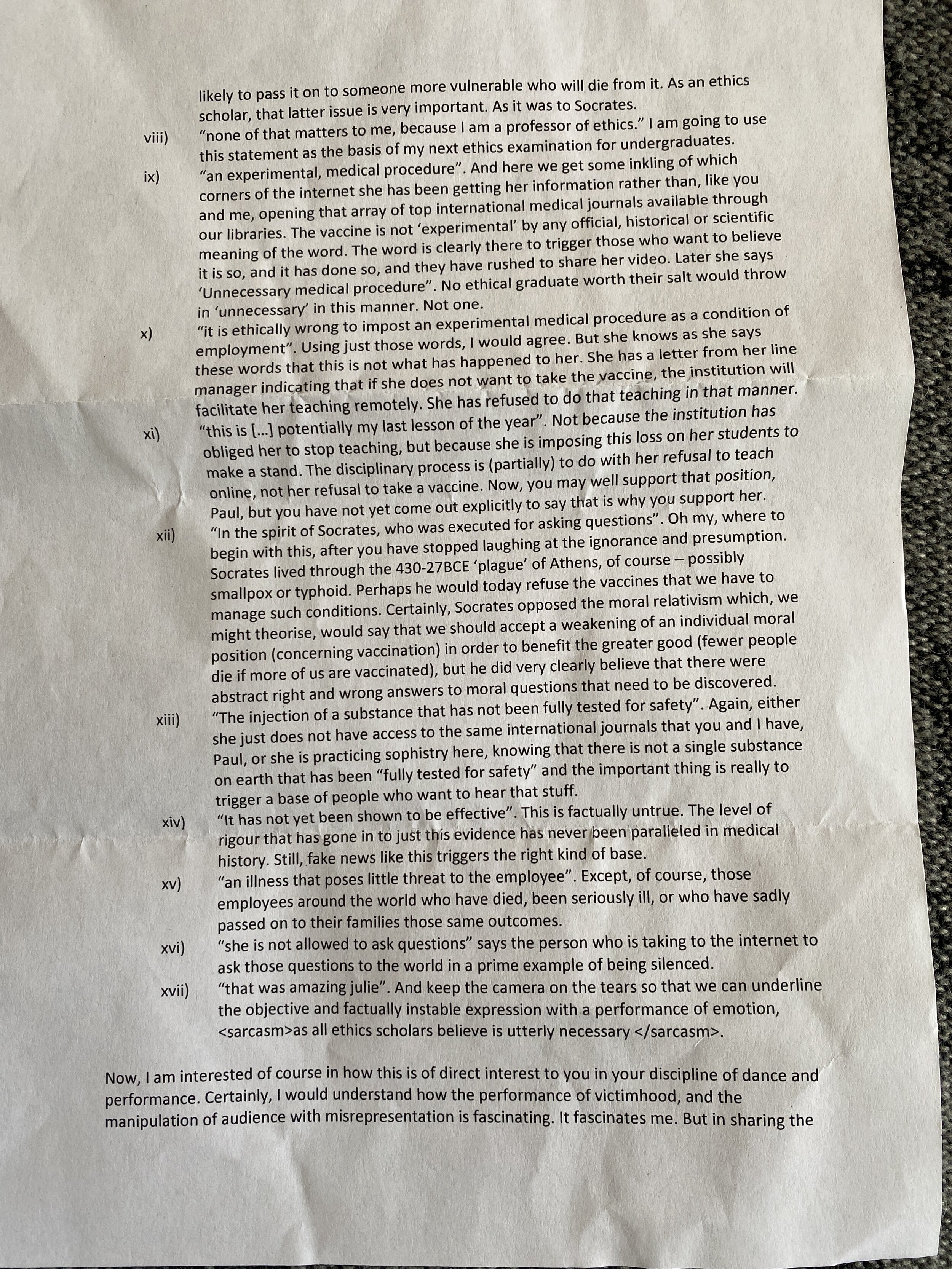
Laboratoire Textile - REVIEW of a unique space of creation in France
LABORATOIRE TEXTILE
Laboratoire Textile is a natural evolution for textile artist Emmanuelle Premel-cabic. We might call it an inevitability, a shedding of skin or an exploration of future space.
Laboratoire Textile is the culmination of an artistic journey that has involved movement in many forms, including through architectural space(s), material circumstances, human encounters, turbulence, precarity, challenges, successes, failures and the endless demand to stand up after each and every unexpected fall....to continue the journey....to be, necessarily, Lost In Space.
Emmanuelle’s work is not, in the quotidian sense, a choice. It is a necessity. She has no choice but to live and work with these material circumstances. It is a connection with life that necessitates the life within Laboratoire Textile.
Nothing is predictable or predicted within this space. It is a daunting prospect. The available resources remain unknown to the artist, and there is a duality within that proposition. It is a circumstance that points to the wider (lack of) support for outsider artists as well as Emmanuelle’s constant search for the raw materials that inform the work.
The sculptures are rooted in upcycling and therefore rely upon found, scavenged and rescued objects and materials. Nowadays, the position of the artist within society is one that needs, and deserves, rescuing. For the outsider artist, of which Emmanuelle is one, the position is more severe. It is a space where the spirit is confronted on a daily basis.
Laboratoire Textile is the antithesis of the world of mainstream contemporary art, which is a deliberately constructed and mediated space, an illusion, an absurd proposition.
The mainstream art market is a marketplace like any other, it is informed by galleries and exhibitions, curators, gatekeepers and arbiters of taste who define our ‘gaze’, so that we might buy their products. It is, therefore, an implicitly restrictive space that is sustained by human agreement rather than intrinsic qualities. Value and worth are determined by subjective perception and dominant market forces.
To illustrate this absurd proposition, we are reminded that, in 2021, Salvatore Garau sold an invisible sculpture titled Io Sono ("I am"), which is made of nothing but exists conceptually and is recognized through a certificate of authenticity.
Emmanuelle’s work emerges through a tacit connection with the material, as opposed to art that is conceptualized, formalized or codified. She never sketches or plans to exhibit, she just ‘does’ it. It is both an impulse and a compulsion, a way of ‘being’, one might say. The work takes form through living with the materials daily, through ‘not knowing’ rather than ‘knowing.’
In a world where an idea of ‘what knowledge is’ is increasingly fed to us via compromised and corrupted machine algorithms like Chat GPT and Wikipedia, to remain in a space of ‘not knowing’ is both an act of ‘freedom’, and of rebellion.
But, in these matters, Emmanuelle has no choice, she cannot do otherwise and the words of the brilliant maverick artist, poet, musician Ivor Cutler resonate with her world most profoundly - art is a deeply personal and therapeutic endeavour.
Laboratoire Textile marks a new, and inevitable, phase where materials, installations and sculptures invite you to enter a space of quasi-performance....it is a visceral space where the ‘people’ are allowed to dwell within, rather than ‘gaze’ at. It is a rare space where one can linger......
Paul Sadot; 8th October 2025
Laboratoire Textile is a unique space situated in the ancient French town of Morlaix.
Photo by Juliette Henoq
LABORATOIRE TEXTILE
Laboratoire Textile est une évolution naturelle pour l'artiste textile Emmanuelle Premel-Cabic. On pourrait parler d'une fatalité, d'une mue ou d'une exploration de l'espace futur.
Laboratoire Textile est l'aboutissement d'un parcours artistique qui a impliqué de nombreux mouvements, notamment à travers des espaces architecturaux, des circonstances matérielles, des rencontres humaines, des turbulences, précarités, défis, succès, échecs et l'exigence sans fin de se relever après chaque chute inattendue... pour continuer le voyage... pour être, nécessairement, perdue dans l’espace.
Le travail d'Emmanuelle n'est pas, au sens quotidien du terme, un choix. C'est une nécessité. Elle n'a d'autre choix que de vivre et de travailler avec ces circonstances matérielles. C'est un lien avec la vie qui rend nécessaire la vie au sein du Laboratoire Textile.
Rien n'est prévisible ni prédéterminé dans cet espace. C'est une perspective intimidante. Les ressources disponibles restent inconnues de l'artiste, et il existe une dualité dans cette proposition. C'est une situation qui met en évidence à la fois le manque de soutien général envers les artistes marginaux, et la recherche constante d'Emmanuelle pour trouver les matières premières qui inspirent son travail.
Les sculptures sont ancrées dans le surcyclage et reposent donc sur des objets et des matériaux trouvés, récupérés et sauvés. De nos jours, la position de l'artiste dans la société est une position qui a besoin et mérite d'être sauvée. Pour les artistes marginaux, dont Emmanuelle, la situation est plus grave. C’est un espace où chaque jour, l’esprit est mis au défi.
Le Laboratoire Textile est l'antithèse du monde de l'art contemporain mainstream, qui est un espace délibérément construit et médiatisé, une illusion, une proposition absurde.
Le marché de l'art mainstream est un marché comme les autres, il est influencé par les galeries et les expositions, les conservateurs, les gardiens et les arbitres du goût qui définissent notre « regard », afin que nous achetions leurs produits. Il s'agit donc d'un espace implicitement restrictif, qui repose sur un accord humain plutôt que sur des qualités intrinsèques. Valeur et importance sont déterminées par la perception subjective et les forces dominantes du marché.
Pour illustrer cette proposition absurde, rappelons-nous qu'en 2021, Salvatore Garau a vendu une sculpture invisible intitulée Io Sono (« Je suis »), faite de rien mais qui existe conceptuellement et est reconnue par un certificat d'authenticité.
Le travail d'Emmanuelle émerge d'une connexion tacite avec la matière, par opposition à l'art conceptualisé, formalisé ou codifié. Elle ne fait jamais d'esquisses ni ne planifie d'expositions, elle « fait », simplement. C'est à la fois impulsif et compulsif, une façon d'être, pourrait-on dire. Le travail prend forme, par la vie quotidienne aux côtés des matériaux, en « ne sachant pas » plutôt qu'en « sachant ».
Dans un monde où l'idée de « ce qu'est la connaissance » nous est de plus en plus imposée par des algorithmes compromis et corrompus tels que Chat GPT et Wikipédia, rester dans un espace de « non-savoir » est à la fois un acte de « liberté » et de rébellion.
Mais, dans ces domaines, Emmanuelle n'a pas le choix, elle ne peut pas faire autrement et les mots du brillant artiste, poète et musicien non-conformiste Ivor Cutler résonnent profondément dans son univers : « L'art est une entreprise profondément personnelle et thérapeutique. »
Laboratoire Textile marque une nouvelle phase inévitable où les matériaux, les installations et les sculptures vous invitent à entrer dans un espace de quasi-performance... Un espace viscéral où l’on est autorisé à séjourner, plutôt qu'à « regarder ». C'est un espace rare où l'on peut s'attarder...
Translation by Mathilde Rojinsky
Photo by Rob Baker Ashton
Dean Andersons TNT show with Special Guest Paul Sadot January 2018
Really enjoyed chatting with Dean.
Many of the tunes I played went on to be big, still underplayed or forgotten.
PLAYLIST
Mitzi Ross I'll Do More For You Baby on Cougar
· Little Dondi– I've Forgot To Get Myself Together on Raines
Delon Washington– Getting Mighty Close on Lovelight
· James Sanders - Come on Up To My Glory on HSE Witness for God
· Bernetia Miller & the Soul Groovers Band – / You Can Tell Me Goodby
· Ray Pollard – This Time (Im Gonna Be True) Shrine
· Sity & James – Should It Be Me on Sprout (covered asGwen & Ray)
· Wild Honey – I Can’t Go On on Houston International
· Shades featuring Bob Fly – Hit It 0n Country Colour (covered as Bobbie Smith - Girl)
· Bobby Black – Faces in the Crowd on Axis Enterprise Records
· Captions – Turn Out The Lights (Kayham)
· John Harris & the Soul Sayers – Hangin In – on Kerston
· Chick Carlton – Your Love Keeps Haunting Me – Alra
· Joey Irving – Can You Handle Me Baby – Vincent
· Brenda Holloway – My Baby Moves Me (unissued)
· The Tylons – Walk Out the Door on AMC
· Antonio Castro – WELFARE
· Jackie Rhett – Get Him In Your Life on Raines
· Sheila Wilmer – Look at your Soul Whole soul
· Unifics – Tables Turned – Take 10 (unissue)
· Soul Chargers – My Heart Beats For You on American
· Alston Brothers – When All Gods Children Will Be Going Home on This World Is Not My Home LP on HSE
· Kae Williams – There Was A Time (unissued)
· Double O Domingo’s – Storm Warning on Split
· Soul Injection – Stay Off the Moon on Accent
· Joni Adams & the Fendermen – Las Vegas on Zodiac
· Four Andantes – Hipper Than Me
LPS
· Twilights – Thank You - on Rae Cox LP Stand Up (side A)
· Biblical Gospel Singers – Oh Give Thanks Unto the Lord - on Song bird Lp Its So Easy Now
· Motivations – Get Ready (track 1 side B) - on Hi Way First Message Lp
· Gospel Artistics – Time Will Be No More - on gospel Truth LP (stax) 1976
· Mighty Jubilations – If You Make One Step – on private press I Found the Answer Lp
· Crossroad Gospel Singers – Trouble In the Atmosphere - 0n Mainstream 1974
· Rev Jerry Washington & the Mighty Flames of Calvary – The Mighty Flames of Calvary on TP
· Inspirational Gospel Singers – Come Holy Ghost – on private He Will Save You LP
· Chicago Travellers – Standing at the Station – BGS LP
· Hope Family Singers – God Will Never Change – Champ
· Loving Sisters – Cosmic Consciousness on Peacock 1974
JAVELIN - An Olympic Tribute
First published in Spinners Zine Issue 5
JAVELIN
The best of the best
a corporate spectacle of
accumulation by dispossession
de Coubertin, the misogynist aristocrat lurking beneath the façade of a level playing field
whilst the fields that once stood bustling with communities are levelled
The IOC thrusting the cash cow javelin through the heart of neighbourhoods
Muscular nationalism and the Barons utterances about the “civilised” versus the “savages” brushed under the astro turf
along with his aristocratic disdain for the working classes
St Louis Olympics and their ‘Anthropology Days’ testing racist hypotheses
1936 Carl Diem conceived the torch relay, blonde-haired blue-eyed torch bearers rousing Germans in support of Hitler
a ‘Nazi Games’ creation that remains intrinsic to the spectacle
It’s traditional you see, pass that torch
Multinational conglomerates making out with global institutions, deeply penetrating each other, moaning and groaning in glee
deep throated cheers from the stands as athletes chase the dreams of lazy porkulent philanthropaths
coming first, coming second, or coming third, but coming together all the same
LA Games changed the game(s), a game changer, corporate capitalist Disneyfication
taking the Mickey and re-animating the profit margins, cartoon celebrity figurines heaving the shot, putting it into global orbit
Coca-Cola Panasonic Visa P & G Acer Dow Samsung Omega Atos McDonalds Lloyds TSB UPS GE BP EDF
healthy stuff, mmmm ‘it’s the real thing’ and it’s the thing that’s real, it’s reality, its realty
Land grabs for theme parks
promised social housing, mass evictions never to return to the level(ed) playing fields
there’s nothing quite like a ‘FuckDonalds’ to put the capitalist spore into
the beating heart of sport
Homeless swept underneath the pavements, social cleansing, over 9000 arrested in Brazil many of them disappearing forever beneath track and field
Hand in hand, a 100m sprint towards gentrification, breaking and skateboarding its way towards a scantily constructed image of social inclusion
a slight of hand to appeal to younger consumers
vampires of the ‘cool’ sucking them dry quicker than they can utter “top rock” or “six step”
The World Dance Federation ‘breaking’ it apart with its rules
Judges pulling it up from its roots
a Frankenstein like re-plantation with WDF and IOC overseers
Celebration Capitalism closely escorted by its equally dysfunctional ugly twin, Disaster Capitalism
holding each other tightly for an erotic last tango in Paris with Brando replaced by Branding, the ultimate climax of any twenty first century movie
Greenwashing and Artwashing its way towards rapacious community encounters, a slight of hand that draws cheers from the stands. Hip hipster Hooray!
IOC giving ‘gifts’ to the hands that look away, no one is for the high jump here
it’s a Fosbury flop, a soft landing into the offshore sands, untouched and golden
A global event, a spectacle, a perfect production of the capitalist ideal, dirty (i)deals and marathon profits for all involved, it’s official(s) it’s beneficial(s)
Public-private hybridities appearing in the taxes
Increased surveillance needed to protect the spectacle, remember G4S running a record time to escape with the loot?
“Im a private in a private(ised) army’” sounds crass but it’s not. Securicor cares
Athens, twenty-one out of twenty-two of the facilities remain derelict along with the promises of drip down effects and community health benefits
wealth benefits, stealth benefits, massaging the egos of public officials and private interests
International rivalry, cold wars, who is cancelled this year? Police and armed forces patrolling the stands for your safety
to understand is to set the Trojan Horse alight and push it back into the realms of the board rooms
Bored to death, literally and laterally, by excavators, so called innovators, and the sport of dispossession
The gold medallists are not on the track, in the field, or in the stadiums
Olympianizing the planet
the six rings of privatisation, one for each finger and one for the nose
use them without paying the organ grinder and you will land in the court
to play tennis of a different sort
that’s the sport of world power you see, do you see?
The opposite of ‘play’, which rejects repression and exploitation, it plays with the truth
the youthful dreams of track and field yielding to the sordid dreams of corpulent business
Hop, skip, and jumping beneath the bankrupt ideology of global sport
the sport of global business is setting new records
Barbaric Sport - The Olympics (Displacement by Dispossession)
I have, for some years, now researched and written about the Olympic Games, the mega-spectacle that, whilst inspiring cheers and celebration, simultaneously engulfs space(s) and evicts communities.
A couple of well researched and evidenced books about these histories are:
Perelman, M. (2012) Barbaric Sport: A Global Plague. New York/London: Verso.
Boykoff, J. (2016) Power Games: A Political History of the Olympics. London & New York: Verso.
SPINNERS a new zine
A new zine has launched and, in my humble estimation, is well worth supporting and checking out.
In these time of fantastically dull legacy media and publishing offerings its nice to see something that gives a nod to the voices of working class culture.
You can visit the site on the link below:
All The Tears Of My Body (ATTOMB)
ATTOMB takes textile sculpture as a starting point through which to explore and unearth the movement that is housed and hidden within the creation story of the sculpture.
The collaboration began in December 2021 with a chance encounter between Emmanuelle and Paul when he was visiting the small town of Morlaix in France and he entered her workshop. Intrigued and viscerally moved by the sculptures and the process of their creation Paul brought one of them back to the UK and began to gather CUT collective members for this new project.
For more information about the project visit: http://www.paulsadot.com/attomb
The Oxford Handbook of Hip Hop Dance Studies - Out April 11th 2022.
I have pleasure in announcing the publishing date for this groundbreaking new book.
The Oxford Handbook of Hip Hop Dance Studies: https://global.oup.com/academic/product/the-oxford-handbook-of-hip-hop-dance-studies-9780190247867?cc=ca&lang=en&
Engaging with a broad range of research and performance genres, The Oxford Handbook of Hip Hop Dance Studies offers the most comprehensive research on Hip Hop dance to date. Filling a lacuna in both Hip Hop and dance studies, the Handbook places practitioners' voices at the forefront and in dialogue with theoretical insights, rooted in critical race theory, anticolonialism, intersectional feminism, and more. Volume editors Mary Fogarty and Imani Kai Johnson have included influential dancers and scholars from around the world: from B-Boys Ken Swift, YNOT, and Storm, to practitioners of locking, waacking and House dance styles such as E. Moncell Durden, Terry Bright Kweku Ofosu, Fly Lady Di, and Leah McFly, and innovative academic work on Hip Hop dance by the most prominent researchers in the field. Throughout the Handbook contributors address individual and social histories of dance, Afrodiasporic and global lineages, the contribution of B-Girls from Honey Rockwell to Rokafella, the "studio-fication" of Hip Hop styles, and moves into theatre, TV, and the digital/social media space.
I am grateful to have my chapter included alongside a host of other practitioners/authors whom I have long admired.
Part IV. Breaking with Convention
23. Negotiating the Metaspace: Hip Hop Dance Artists in the Space of UK Dance/Theatre
Please share with anyone you think may be interested.
Bombastic, Bullying Letter from SCUDD List member
I received this anonymous letter from a SCUDD list member:
Point 4 in the letter has obviously been disproved by President Trudeau’s recent announcement, thus highlighting the smugness of ‘anonymous’s’ comment as naive and under-researched. Canada has now introduced mandatory vaccination for many work places and anyone over 12 to be able to travel: some would say this is both worrying, unethical and a step towards totalitarianism.
Trying to threaten/intimidate me with their brilliant ‘Peer Review skills and connections?’
They imply that SCUDD encouraged them to contact me (anonymously) off list via my agents office.
If that is the case you must please make it clear to members that they cannot do that and that if they wish to contact me my email is available on my website and also off list via SCUDD.
Perhaps, upon reading it, some members may recognise the tone of this bombastic, dogmatic and sarcastic hand. I pity their poor students if they dare to disagree with this bully.
I cannot be bothered devoting any time to their obsessive point making, most of which is totally inaccurate and unsubstantiated and obsessed with Dr Ponesse and belittling her experience.
I reiterate that I am neither pro- or anti- vaccine, I am pro-choice and feel an individuals medical status is a personal matter.
A few points for the anonymous individual:
They must have missed the recent reading of the COVID-19 Vaccine Damage Bill in UK parliament and the figures shared of those who have been injured (not fake news but factual data). Or, President Trudeau announcing that anyone over 12 years old will not be able to travel in Canada without being vaccinated.
Maybe they have not unpicked the conflicts of interest at the MHRA?
Or, perhaps their research does not extend to examining the pharmaceutical companies and their documented past fines for unethical behaviour and corruption?
This is all fact, not fiction or ‘fake news’ and to deem this not worthy of ethical debate is truly ignorant. Some are calling it surreptitious forced vaccination via excluding people from space(s) and that can reasonably be argued and discussed, but not ignored.
Or perhaps they missed some BLM members stating openly that the mandating of vaccines is particularly discriminatory towards African Americans. Here it is in Instagram form, which if you read the letters finale, Dr Anonymous indicates they prefer as a medium of communication:
If you read on this topic you may understand the reluctance given the long and well documented history of medical experimentation imposed upon African Americans See: https://www.goodreads.com/book/show/114192.Medical_Apartheid
Maybe they haven’t watched the award winning film TrustWHO : https://www.amazon.co.uk/TrustWHO-Lilian-Franck/dp/B079XRLSCK and actually believe the Pharmaceutical complex has no history of corruption and non-compliance with ethical behaviour or indeed the law. Maybe they do not ask why this documentary film was recently removed from YouTube via ‘Google’ censorship. You can research and view the pharmaceutical industry in depth should you wish, including past documented fines for such behaviours.
If this is the level of research that this academic undertakes before sending bombastic attempts at debate to my door, it is a sad state of affairs. I need more than research that only looks at the Guardian, The Independent, the BBC or any other compromised outlet. There are actually well researched books out there about this very subject, yet this individual obviously seems to feel they can comment without undertaking an engaged literature review. Absolutely appalling and arrogant approach to (non)debate.
That they pursue this anonymously and ask me, at the end, to respond via Instagram or Twitter is laughable and a reflection of their own fear and lack of confidence in their argument. Additionally, it is a reflection of where they get their ‘factual’ data from and highlights that they obviously prefer to have pseudo names on discredited ‘fake news’ platforms rather than take an ‘ethical’ approach of owning their own bombast.
SCUDD please inform members that anonymous letter writing to a persons work address is not acceptable and totally unethical. It is, in fact sinister and tantamount to harassment.
New Digital Transitions: Bespoke Specialist Workshops for Performers, Lecturers and Students.
I would like to share an update and the positive outcomes of the Digital Transitions workshops, now further developed as 'New Digital Transitions'. Their reception and success has been truly fantastic.
Firstly, you can view some of the workshop outcomes here: http://www.paulsadot.com/workshops
New Digital Transitions
Working with Performers Online
Bespoke Specialist Workshops for Performers, Lecturers and Students.
Emerging from the pandemic lockdown scenarios, these unique performer training workshops are the culmination of Paul Sadot's in-depth practical development of DIY digital performances with students and professionals online.
New Digital Transitions draws on Paul’s extensive professional experience in devising for film, theatre and dance where he has worked as an actor, director, choreographer, and movement director with artists and companies such as Shane Meadows, Ultima Vez, Gucci, Kenzo, Sadler’s Wells Breakin’ Convention, Nike, BBC, Channel Four and many more.
These practical workshops introduce new ideas of agency, access, perspective, proximity, and virtuosity, and have inspired excitement and empowerment amongst graduate and post-graduate students of dance and acting.
Using ubiquitous remote technology, the work shares new digital performance methodologies and pedagogies that respond to the shifts in the structures that will make up many post-pandemic performance environments. The work is being recognised as an essential and powerful addition to performer training, offering new skill sets that develop the performers’ reach, autonomy, agency, and transferable skills: such as editing, marketing, and self-taping.
As part of their career development, previous students have successfully utilised the high-quality material generated within the process to further their social media performer profiles, recognising that casting increasingly takes place through these digital spaces.
New Digital Transitions has so far been used in several contexts:
To mediate national and international collaborations between universities and students.
To expand creative networks and develop professional opportunities for artists emerging from educational contexts.
To take courses online.
To create specialist workshops and performances with professional theatre and dance companies.
This workshop, series of workshops, or more extensive course can stand alone or act in collaboration with existing educational formats and pedagogues as a complementary and essential arm to support and nurture our culture’s creative vocabulary as we emerge into post-pandemic modes of expression.
The feedback has been tremendous:
“Paul worked with our Masters level students to produce an innovative and experimental performance work, hosted online via Zoom. The performance outcome was outstanding, very affective, and emotionally engaging. The work employed the technology platform well as an intrinsic part of the creative process and illustrated the potential of dance-making and performing in this way.”
— Dr. Victoria Hunter (Reader in Site-Dance and Choreography, University of Chichester
“Paul Sadot’s workshop introduced students to concepts on liveness, digi-corporeality, and ephemerality through detailed techniques in Zoom. He shared his practice with over 140 students in two workshops which were excellent and helped the students formulate practical ideas for staging their plays. I cannot recommend his workshop enough! I was very impressed with the filmed examples he used as well as the inviting atmosphere he created in an online seminar!”
— Dr Kara Reilly (Senior Lecturer in Drama, University of Exeter)
Watch the film '(dis)location' by University of Chichester MA Dance students
A Digital Transitions Film
Made during a four day intensive with University of Chichester Dance MA students.
Premiere of '(dis)location': 'lockdown' dance in a digital space
You are warmly invited to attend the online premiere of '(dis)location’ on Friday 19th February at 7pm (UK time).
‘(dis)location’ is emerging through a five day online intensive collaboration between University of Chichester MA dance students (New Media & Performance) and ‘Digital Transitions’ workshops led by Director & Choreodramaturg Paul Sadot.
INSTRUCTIONS TO WATCH: In order to join us please just write or cut and paste University of Chichester Dance into YouTube search and click on the link for '(dis)location’ - The link will be available after 6pm (UK time)
The film examines the experience of lockdown through movement and digital practices developed from the ubiquitous technologies available to students at home: exploring the lockdown and post-pandemic performative landscape and the potential of what Sadot calls ‘DIY Digi-corporeality’.
DIY Digi-corporeal practices are questioning perceived notions of agency, access and ‘liveness’ in theatre. It is implicitly a choreopolitical movement, where rapidly developing ubiquitous technology is demonstrably questioning ideas about proximity, perspective, agency, virtuosity, access and mobility, both in theatrical settings and beyond.
Digital Transitions uses a novel choreographic lens to examine how the pandemic has changed performance practice and to articulate the lasting legacy of these re-imagined spatial practices. In doing so, the work asks why, how, when and where performance takes place, who is granted access to it and under what conditions
For more information about Digital Transitions: http://www.paulsadot.com/workshops
For more information about DIY Digi-corporeality: http://www.paulsadot.com/digicorporeality
MACBETH Projeto #6: CIPA Birmingham Royal Conservatoire & Os Satyros (Brazil)
http://macbethprojeto.co.uk/cycle-6/ for more information
Macbeth Brazil
Date: December 2020
Location: Zoom online digital platform/ Host: Teatro Os Satyros (Sao Paulo, Brazil)
Format: live Zoom Digital Theatre
Participants: Aleksandar Dundjerovic, Stephen Simms, Paul Sadot, Maria Sanchez, Centre for Interdisciplinary Performing Arts (CIPA) and Teatro Os Satyros (www.satyros.com.br)
External Funding: Satyrianas Festival / Ministry of Culture Brazil/SESC Brazil
Description:
Cycle Six developed over four weeks as a bilingual English and Portuguese performance. It was facilitated through technology and it was digital theatre in its entirety. The concept put forward by Rodolpho Garcia Vazquez, artistic director of Os Satyros and co-director of Macbeth #6 ‘ is tele-co-presence’ as a principal of digital theatre. It refers to actors and physical audience being present at the same time, but on screen, using a technological extension, to do live encounters. The online platform used for the live performance was Zoom. The rehearsals were online with actors in their location (homes or studios) in different countries (UK, USA and Brazil) and time zones.
Research enquiry:
How to create a live performance using digital theatre within different cultural contexts? What is our collaborative strategy with Brazilian partner and their work method, which is different from our practices, particularly as they have extensive experience within digital theatre? Aleksandar Dundjerovic’s directing experience is with live theatre performance and multimedia contexts. CIPA has been exploring video art/performance, which was pre-recorded. Directing and devising Cycle # 6 demanded critical interrogation of the rehearsal collaboration and interdisciplinary creative strategies.
Research background:
Teatro Os Satyros has been researching and experimenting with cyber theatre since 2009. They moved into creating live digital theatre once C19 forced all theatres and public life in Sao Paulo to close. The starting idea was to investigate the connection of theatre with the technological digital revolution. The platform used was Zoom, which allowed live performance to take place. CIPA had previously experimented with video art/performance and recorded devised performance. Paul Sadot, who worked as a video art editor on Macbeth, had extensive experience with this art form.
Methodology:
This is an experimental performance that uses an interdisciplinary methodology consisting of exploration of cross-cultural and bi-lingual live digital performance and a recorded video art collaboration devised by an international cast. Fundamentally, we had three years of experience to draw on while Os Satyros worked within the online live platform that they championed.
Outcomes and evaluation:
The live performance was followed by 146 devices and approximately 300 people globally. It created a new understanding and knowledge of a novel way of making live theatre. A post-production Q&A discussion was followed by approximately 90 devices. The audience engaged positively with a range of questions about the creative process and performance narrative. It was pointed out that this model of work can be applied in performing arts, creative industry and education. The Q&A was recorded and will play an essential part in the future development of the performance. The plan is to develop the performance further, so that it is performed within Teatro Os Satyros’ digital theatre repertoire.
'Once Upon A Time In Wigan': short documentary (the original production of the play 2002-2005)
Many people have confused the legendary original production by Paul Sadot and Urban Expansions (Manchester) with productions of the same title that followed, but there was only one sell-out, award nominated, version.
This short documentary captures the Director/Choreographer/Producer personal account of the development of the Urban Expansions Production of ‘Once Upon A Time In Wigan’.
It was originally commissioned by Paul Sadot’s company Urban Expansions Limited and CONTACT Theatre Manchester and first produced, choreographed and staged in 2002-2005 by Paul Sadot
Following the end of the 2005 tour of the play, Paul moved on to other performance projects. The play underwent minor re-writes, and sometimes major transformations, under various directors and still continues to be staged.
All copyright to the footage used in this film is owned by Paul Sadot and documents his personal work staging, choreographing and directing the play. No dialogue from the play is included.
Contact: http://www.paulsadot.com/contact
Commissioned, Produced, Directed and Choreographed by: Paul Sadot
Written by: Mick Martin
Original Urban Expansions Staging Concept by: Paul Sadot
Set Design by Giuseppe & Emma Belli
Musical Score Complied by: Paul Sadot
The original production was generously supported by Arts Council funding awarded to Urban Expansions Limited
Macbeth Projeto/cycle-6: Centre for Interdisciplinary Performative Arts
http://macbethprojeto.co.uk/cycle-6/
A project that I have been very excited to take part in my role as Visiting Research Fellow at the Royal Birmingham Conservatoire: Centre for Interdisciplinary Performative Arts.
The project explores new performance practices via Zoom Digital Theatre in a collaboration with Brazilian Company http://satyros.com.br/os-satyros/
Trailer for Macbeth: Os Satyros & CIPA
Recorded version of the LIVE Zoom Digital Theatre Performance of Macbeth
Look At Your Soul - A New Listening Project has just launched!
Please look, listen and share. Some amazing sets to share on this new listening project.
www.lookatyoursoul.org
I’ve been working on creating this site, with Kristen Neilson, over the past few months - and we are finally ready to set it free!!
Look At Your Soul is an active listening platform. As some of you will know - I have collected and danced to rare northern soul and funk 45s for most of my life. The music has had an incredible, positive, and deep impact on my ‘life’, it has been ‘life’ giving. It was responsible for starting me along a ‘life’ long path of dancing and movement that began at the age of 15, when I went to my first all nighter, and danced.
Following the terrible murders of George Floyd, Breonna Taylor and Ahmaud Arbery earlier this year - I found myself having challenging discussions about racism in the UK, and it became clear to me that we all have a duty to actively fight against this in our everyday lives.
Kristen and I got talking online (we hadn’t ever met before) about how some aspects of the UK rare and Northern Soul scene are blatantly racist - and shared stories of what we had witnessed over the years.
This is an underground scene which is based ENTIRELY around a love of rare Black American soul records from the 60s and 70s.
So you see the sad irony.
So we got our heads together and decided to do something - our small contribution to opening up a conversation, actively listening to these records again with these issues in mind, asking rare soul collectors from across the globe (of which there are a few!) to revisit their music, revisit their records and the artists, to create a set of “Soul With a Message” to share on our platform.
This is just the beginning and I am excited to see how this will develop over the next few months/years!
First incredible set is by collector, Dj and music historian Tommy Sovik (Norway)
Thanks to Sarah Raine, Tim Wall and Liam Quinn for the inspiring talks and support for the project!
Soul With A Message (SWAM) - a term coined by music historian Tommy Sovik (Norway)
'(dis)integration' chosen for SOIFF International Short Film Festival
Great to have the film we made at the beginning of lockdown - ‘(dis)integration’ - selected as one of the final 64 (from over 400 entries, from 22 countries) to be shown as part of the:
En cuarentena’ de la Soria International Short Film Festival (SOIFF)
They will be screened via Vimeo between November 12 -22nd
Director/ Choreodramaturg: me @industryart
Dance Artist: @killthekat_
DOP: @robbakerashton
Editor: @alice_underwood_films
Soundscape: @icyaudiovisual
You can watch (dis)integration below:
